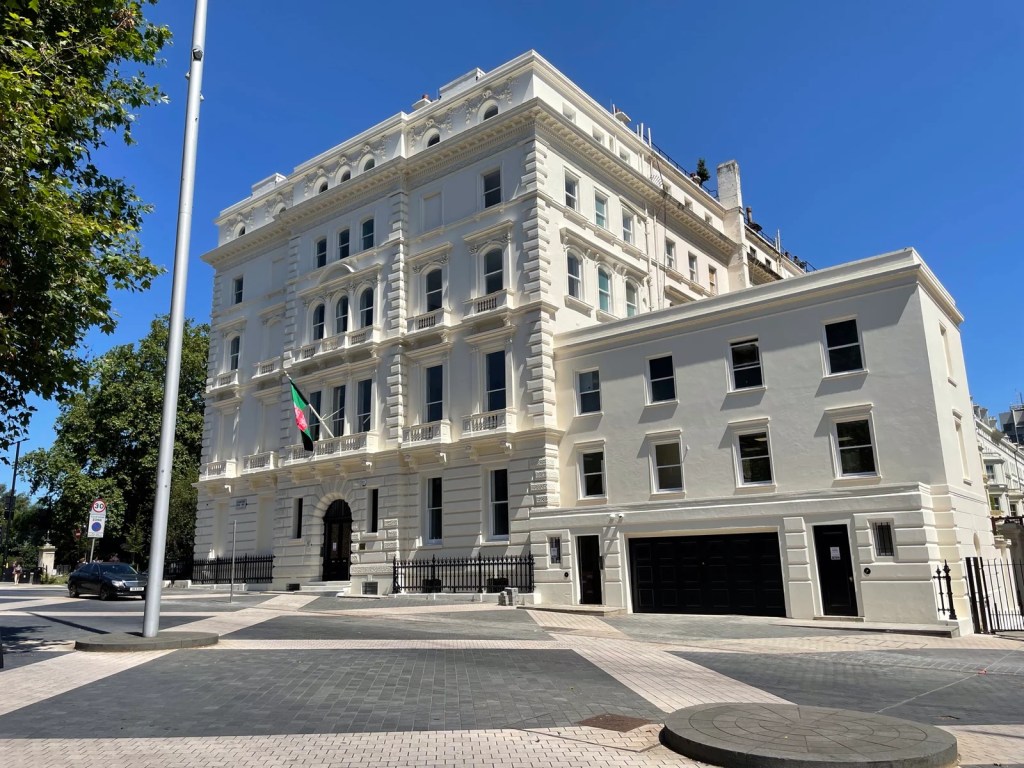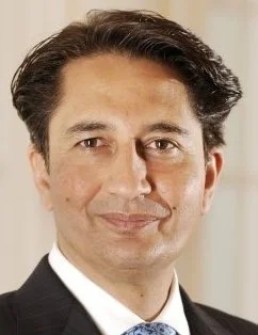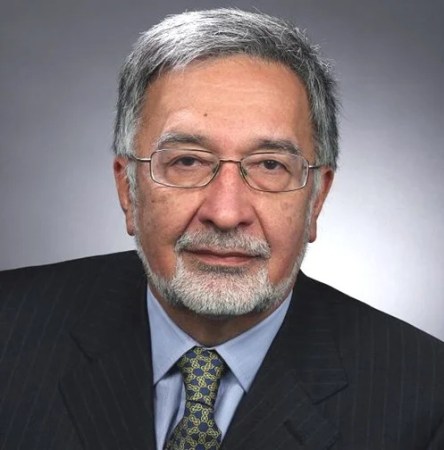Embassy History
A Brief History of the Embassy and Ambassadors of Afghanistan in London

The embassy of Afghanistan in London became operational in March 1922 following the arrival of Afghanistan’s first Minister Plenipotentiary to the United Kingdom, Mr. Abdul Hadi Dawi (1894-1982). Mr. Dawi was a well-known Afghan intellectual and a close friend and ally of the famed Mamood Tarzai, the first foreign minister of independent Afghanistan and the founder of modern journalism in the country. (Tarzi was the father-in-law of King Amanullah who ruled Afghanistan from 1919 to1929.) Mr. Dawi served as Minister Plenipotentiary in London until 1924. Years later, Mr. Dawi served as Speaker of the Lower House of Afghanistan’s parliament (1950-52).
The building, in which the Afghan embassy is housed today was built in 1846-48 and purchased by the Royal State of Afghanistan in 1925. The building, located across London’s famous Hyde Park and Royal Albert Hall, counts among the jewels of the city’s historic structures. The embassy’s annex-building was built in 1955 and currently houses its consulate section.
Ever since its establishment in 1922, the embassy of Afghanistan in London has been considered within the leadership and foreign-policy establishment of Afghanistan as one of the most important foreign liaison offices of the country.
Until the communist takeover of 1978, the majority of the personalities appointed to the post of ambassadorship in London were people of fame and rank, many of whom belonged to the elite ruling class. The names and approximate posting dates of the well-known Afghans who severed as ambassador in London are as follows:
- Abdul Hadi Dawi (Minister Plenipotentiary, June 1922-1923)
- Said Qasem Khan (Acting Head of Mission, June 1923-1925)
- Shuja ud Dawla (Minister Plenipotentiary, April 1925-1929)
- Marshall Shah Wali Khan (June 1930-1931, uncle of King Zaher Shah)
- Ahmad Ali Sulaiman (1931-1932, member of the royal family)
- Ali Mohammad Khan (1933-37, member of the royal family)
- Ahmad Ali Sulaiman (1938-1945, member of the royal family)
- Sardar Mohammad Naim Khan (1945-48, Cousin of King Zaher Shah)
- Sardar Faiz Mohammad Zakria (, 1949-1950, member of the royal family)
- Marshall Shah Wali Khan (June 1950-1952, uncle of King Zaher Shah)
- Dr. Najibullah Torwayana (1952-1954, well-known intellectual)
- Mohammad Hashem Maiwandwal (1954-1957; later prime minister (1965-67)
- Mohammad Kabir Ludin (1957-1960)
- Faiz Mohammad Zakria (1960-1961, member of the royal family)
- Mohammad Kabir Ludin (1961-1962)
- Abdulllah Malikyar (1962-1964)
- Dr. Abdul Majid (March 1967-1971)
- Prince Zalmai Mahmood Ghazi (1971-1973; cousin of King Zaher Shah)
- Hamidullah Enayat Seraj (1974, nephew and son-in-law of King Amanullah)
- Abdur-Rahman Pajhwak(March 1973-1977)
- Abdul Wakil (1978-1979)
- From 1981 - 2001 there are no accredited Ambassador
- Ahmad Wali Massoud (2002-2006)
- Dr. Rahim Sherzoy (2006-2009)
- Humayon Tandar (2009-2011)
- Dr. Hameed Haami (Charge d’Affair 2011-2012)
- Dr. Mohammad Daud Yaar (2012 - 2015)
- Ahmad Zia Siamak (Charge d’Affair March 2015- March 2016)
- Liaquet Ali Ameri (Charge d’Affair March 2016- May 2017)
- HE Said Tayeb Jawad (Ambassador May 2017 - 2021)
Following the communist coup of April 1978, the Afghan embassy in London lost its valued status within the foreign policy establishment of the country. This was due to the new regime’s anti-West bias and intimate relations with the former Soviet Union. Another factor that might have contributed to the reduced status of the Afghan embassy in London was the reorientation of Afghanistan’s foreign trade and finance from the UK towards the US (in 1960s and 1970s), and eventually towards the Soviet Block (in 1980s).
Following the collapse of the communist regime in 1992, Mr. Ahmad Wali Massoud, the younger brother of the legendary Afghan National Hero, Ahmad Shah Massoud, was appointed as Afghanistan’s Minister Counsellor and Charge de Affaire in London. After the fall of the Taliban, and following the establishment of the new administration under the Bonn Agreement, Mr. Ahmad Wali Massoud was appointed as ambassador to the United Kingdom in 2003. Mr. Massoud’s appointment, once again elevated the position of the Afghan ambassador in the United Kingdom. Mr. Wali Massoud, a London-based political activist during the Soviet occupation of Afghanistan, has a Masters Degree in political science.
In 2007, Mr. Wali Massoud was replaced by Dr. Mohammad Rahim Sherzoy, a career diplomat, who had served as Afghanistan’s ambassador to Pakistan during President Mohammad Daud’s rule. Before his ambassadorship in the UK, Dr. Sherzoy was Afghanistan’s ambassador in Egypt, a position to which he was appointed after serving as Deputy Foreign Minister for Political Affairs. Dr. Sherzoy has a Ph.D. in political science and served in 1980’s as head of the office of Afghanistan’s former King, Zaher Shah (Father of the Nation), in Rome, Italy. In 2009, Mr. Homayun Tandar, presently (2013) Afghanistan’s ambassador to Belgium, was appointed as ambassador to London. Mr. Tandar, an ardent archaeologist, is a career diplomat and has studied in France.
From March 2011 until 4 August 2012, the Afghan embassy in London was under the supervision of Dr. Hameed Haami, the embassy’s Minister Counsellor, serving as Chargé d’Affaires. Dr. Haami is a physician by profession and has a Masters degree in Diplomatic Studies & International Security from Westminster University.
Dr. Mohammad Daud Yaar, former Ambassador served as Director of Policy and Oversight at the President’s Office of National Security Council before joining the Ministry of Foreign Affairs as Director General of Economic Affairs in January 2011. Dr. Yaar was appointed as ambassador to the United Kingdom by His Excellency Hamid Karzai, the President of the Islamic Republic of Afghanistan, in June 2012. Dr. Yaar served as ambassador until March 2015.
Ahmad Zia Siamak served as Minister Counsellor from March 2013 later he was appointed as Chargé d’Affaires till March 2016.
Liaquet Ali Ameri serves as Counsellor since September 2014 and later appointed as Chargé d’Affaires of the Embassy till May 2017.
Said Tayeb Jawad May 2017 - May 2021 .
Said T. Jawad is the Ambassador of Afghanistan to the United Kingdom. He has previously served as Chief of Staff to the Presidentof Afghanistan (2001 to 2003), Afghanistan’s Ambassador to the United States, Mexico, Brazil, Columbia and Argentina (2003-2010), the Senior Political and Foreign Policy Advisor to the Chief Executive of Afghanistan (2015-2017), the Chief Executive Officer of Capitalize LLC, a global strategic advisory firm headquartered in Washington, DC (2010-2017), the Chairman of the Foundation for Afghanistan (2004-2014); and as a Global Political Strategist and Senior Counselor at APCO Worldwide (2010-2017).
HE Dr Zalmai Rassoul (May 2021 - Present)
Dr Zalmai Rassoul - Ambassador of Afghanistan in the United kingdom
Dr Zalmai Rassoul has a wealth of experience in diplomacy, international affairs, governance, and consensus building. He served as the Minister of Foreign Affairs of the Islamic Republic of Afghanistan from January 2010 to October 2013.
As the Minister of Foreign Affairs, Dr Zalmai Rassoul played an instrumental role in reshaping, strengthening, and expanding Afghanistan’s bilateral relations with countries at the regional, global and multilateral level. Under his leadership, significant progress was made towards promoting regional cooperation with Afghanistan’s neighbours and through multilateral agencies. As such, within his vision, the Heart of Asia-Istanbul Process was launched in 2011, as one of the key Afghan-led multi-stakeholder platforms for sincere and results-oriented regional cooperation, partnership, and consensus building.
For full biography of Ambassador Rassoul, click here.
Afghan Ambassadors in the UK
| Ambassador’s Name and period of service: | Ambassador Picture |
| Mr. Abdul Hadi Dawi (1922-1924).
Mr. Dawi was a well-known Afghan intellectual and a close friend and ally of the famed Mamood Tarzai, the first foreign minister of independent Afghanistan and the founder of modern journalism in the country. (Tarzi was the father-in-law of King Amanullah who ruled Afghanistan from 1919 to1929.) Mr. Dawi served as Minister Plenipotentiary in London until 1924. Years later, Mr. Dawi served as Speaker of the Lower House of Afghanistan’s parliament (1950-52). |
|
| Siad Qasim Khan (Acting Head of Mission, 1923-1925) | |
| Shuja ud Dawla (Minister Plenipotentiary, 1925-1929) | |
| Marshall Shah Wali Khan (Ambassador, 1930-1931)
Sardar Shah Wali was born in April 16, 1888 (Died in April 1977) also known as Field Marshal Sardar Shah Wali Khan Ghazi was a political and military figure in Afghanistan. He was one of the uncles of King Mohammad Zahir Shah and President Mohammed Daud Khan. He was full brother of Prime Minister Sardar Shah Mahmud Khan, King Mohammed Nadir Shah and half-brother of Prime Minister Mohammad Hashim Khan. He was the father of His Royal Highness Lieutenant-General Sardar Abdul Wali Khan, senior cousin and adviser to king Mohammed Zahir Shah throughout their exile. |
|
| Ahmad Ali Sulaiman (1931-32, member of the royal family) | |
| Ali Mohammad Khan (1933-37, member of the royal family) | |
| Ahmad Ali Sulaiman (1938-1945, member of the royal family) | |
| Sardar Mohammad Naim Khan (1945-48, Cousin of King Zaher Shah) | |
| Sardar Faiz Mohammad Zakria (, 1949-50, member of the royal family)
Sardar Haji Faiz Muhammad Khan Zikeria born in Kabul, in 1892 completed his education in Habiba College. He was the counsellor of Foreign Service in 1921, he was also acting Minister of Education from 1923-1924 became Minister for Education 1924-1927. He was later Minister for Foreign Affairs 1929-1938, became Ambassador to Turkey from 1938–1948, ambassador at the court of St James’s 1949-1950 and to Saudi Arabia 1955-1960. Emigrated to the USA in 1964. Sardar Haji Faiz was also a noted poet and writer. He died in the USA, in 1979, as being decedents of royal blood line of Barakzai Dynasty he was married 3 times and had 9 sons and 4 daughters. Having raised great children such as politician Faiz Ahmad Khan Zikeria, famous Dari poet, composer and musician Fazl Ahmad KhanNainawaz, Habib Ahmad Khan Zikria, an Emeritus professor of surgery at the College of Physicians & Surgeons, Columbia University in New York City. |
|
| Marshall Shah Wali Khan (Ambassador, 1930-1931)
Sardar Shah Wali was born in April 16, 1888 (Died in April 1977) also known as Field Marshal Sardar Shah Wali Khan Ghazi was a political and military figure in Afghanistan. He was one of the uncles of King Mohammad Zahir Shah and President Mohammed Daud Khan. He was full brother of Prime Minister Sardar Shah Mahmud Khan, King Mohammed Nadir Shah and half-brother of Prime Minister Mohammad Hashim Khan. He was the father of His Royal Highness Lieutenant-General Sardar Abdul Wali Khan, senior cousin and adviser to king Mohammed Zahir Shah throughout their exile. |
|
| Dr. Najibullah Torwayana (1952-1954, well-known intellectual) | |
| Mohammad Hashem Maiwandwal (1954-1957; later Afghanistan’s prime minister (1965-67) | |
| Mohammad Kabir Ludin (1957-1960) | |
| Sardar Faiz Mohammad Zakria (, 1960-1961) | |
| Mohammad Kabir Ludin (1961-1962) | |
| Abdullah Malikyar (1963-1966)
Abdullah Malikyar was born in 1908 in city of Ghazni. Young Abdullah had ambitions to serve his country and to serve his people at a very young age. He Attended Elementary School in Ghazni City and then moved to Kabul and attended Amania High School. He Married Khairia and had 2 daughters, Laila Malikyar and Gulalai Malikyar Daud. Gulalai was the lone survivor in the bloody coup at the presidential palace the assassinated President Daud her late father-in-law. More—->
|
|
| Dr. Abdul Majid (1967-1971) | |
| Prince Zalmai Mahmood Ghazi (1971-1972; cousin of King Zaher Shah) | |
| Hamidullah Enayat Seraj (1972-1973, nephew and son-in-law of King Amanullah) | |
| Abdur-Rahman Pajhwak (1974-1977) | |
| Abdul Wakil (1978-1979) | |
| From 1981 - 2001 there are no accredited Ambassador | |
| Ahmad Wali Massoud (2002-2006) | |
| Dr. Rahim Sherzoy (2006-2009) | |
| Humayon Tandar (2009-2011) | |
| Dr. Hameed Haami (Chargé d’ Affaires - 2011-2012) | |
| Dr. Mohammad Daud Yaar, Ph.D. (Aug. 2012-March 2015)
Mohammad Daud Yaar was born in Kabul, the capital city of Afghanistan. He graduated from the Faculty of Economics, Kabul University (1973). |
|
| Ahmad Zia Siamak (March 2015 - March 2016)
Ahmad Zia Siamak Herawi |
|
| Liaquet Ali Ameri Chargé d’ Affaires (March 2016 - May 2017)
Liquet Ali Ameri |
|
| HE Ambassador Siad Tayeb Jawad (May 2017 - May 2021)
Ambassador S. Tayeb JawadSaid T. Jawad is the Ambassador of Afghanistan to the United Kingdom. He has previously served as Chief of Staff to the President of Afghanistan (2001 to 2003), Afghanistan’s Ambassador to the United States, Mexico, Brazil, Columbia and Argentina (2003-2010), the Senior Political and Foreign Policy Advisor to the Chief Executive of Afghanistan (2015-2017), the Chief Executive Officer of Capitalize LLC, a global strategic advisory firm headquartered in Washington, DC (2010-2017), the Chairman of the Foundation for Afghanistan (2004-2014); and as a Global Political Strategist and Senior Counselor at APCO Worldwide (2010-2017). |
 |
| HE Ambassador Dr Zalmai Rassoul (May 2021 - Present)
Dr Zalmai Rassoul, AmbassadorDr Zalmai Rassoul has a wealth of experience in diplomacy, international affairs, governance, and consensus building. He served as the Minister of Foreign Affairs of the Islamic Republic of Afghanistan from January 2010 to October 2013. As the Minister of Foreign Affairs, Dr Zalmai Rassoul played an instrumental role in reshaping, strengthening, and expanding Afghanistan’s bilateral relations with countries at the regional, global and multilateral level. Under his leadership, significant progress was made towards promoting regional cooperation with Afghanistan’s neighbours and through multilateral agencies. As such, within his vision, the Heart of Asia-Istanbul Process was launched in 2011, as one of the key Afghan-led multi-stakeholder platforms for sincere and results-oriented regional cooperation, partnership, and consensus building. For Full Biography, Click Here |
 |
